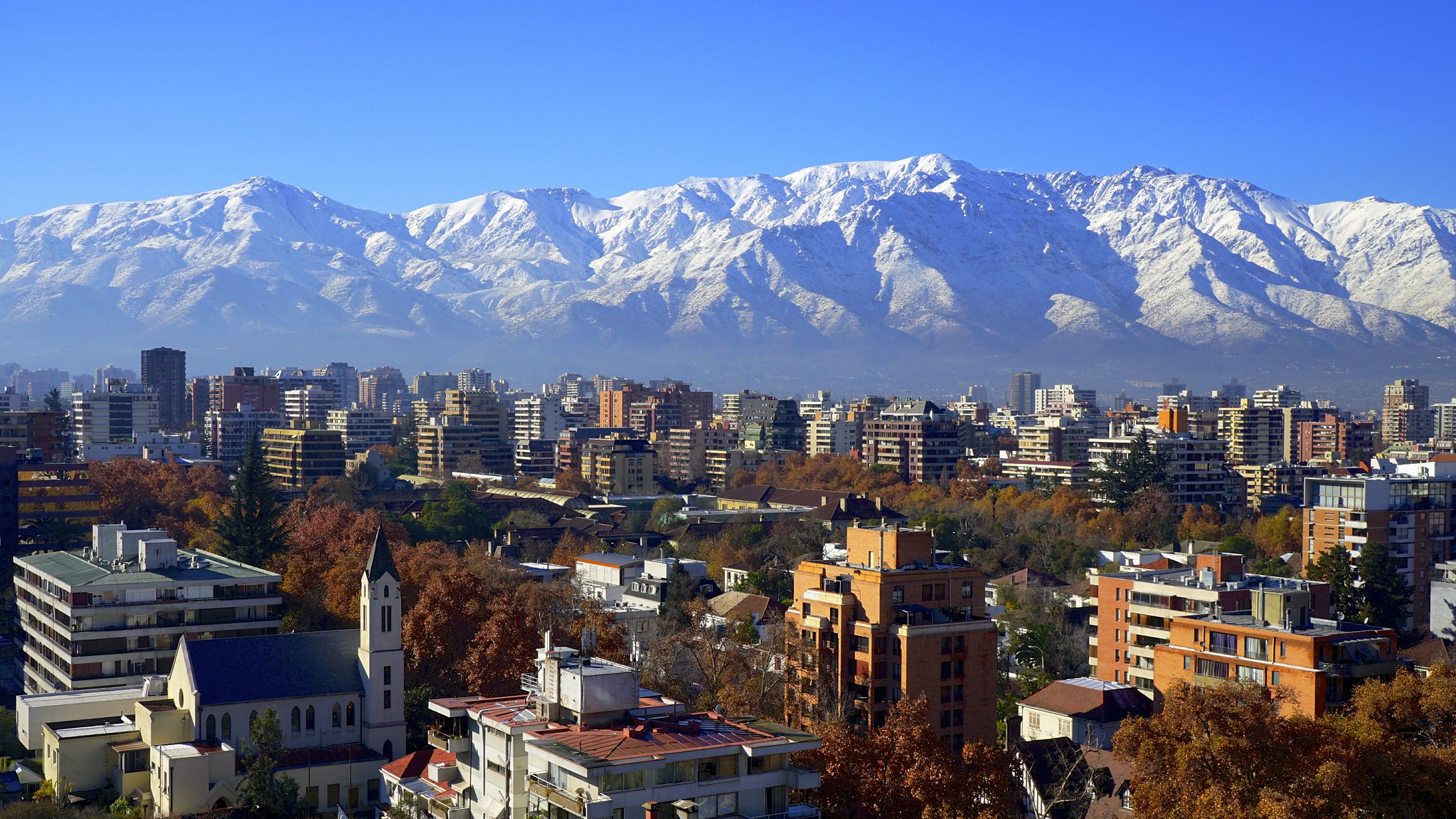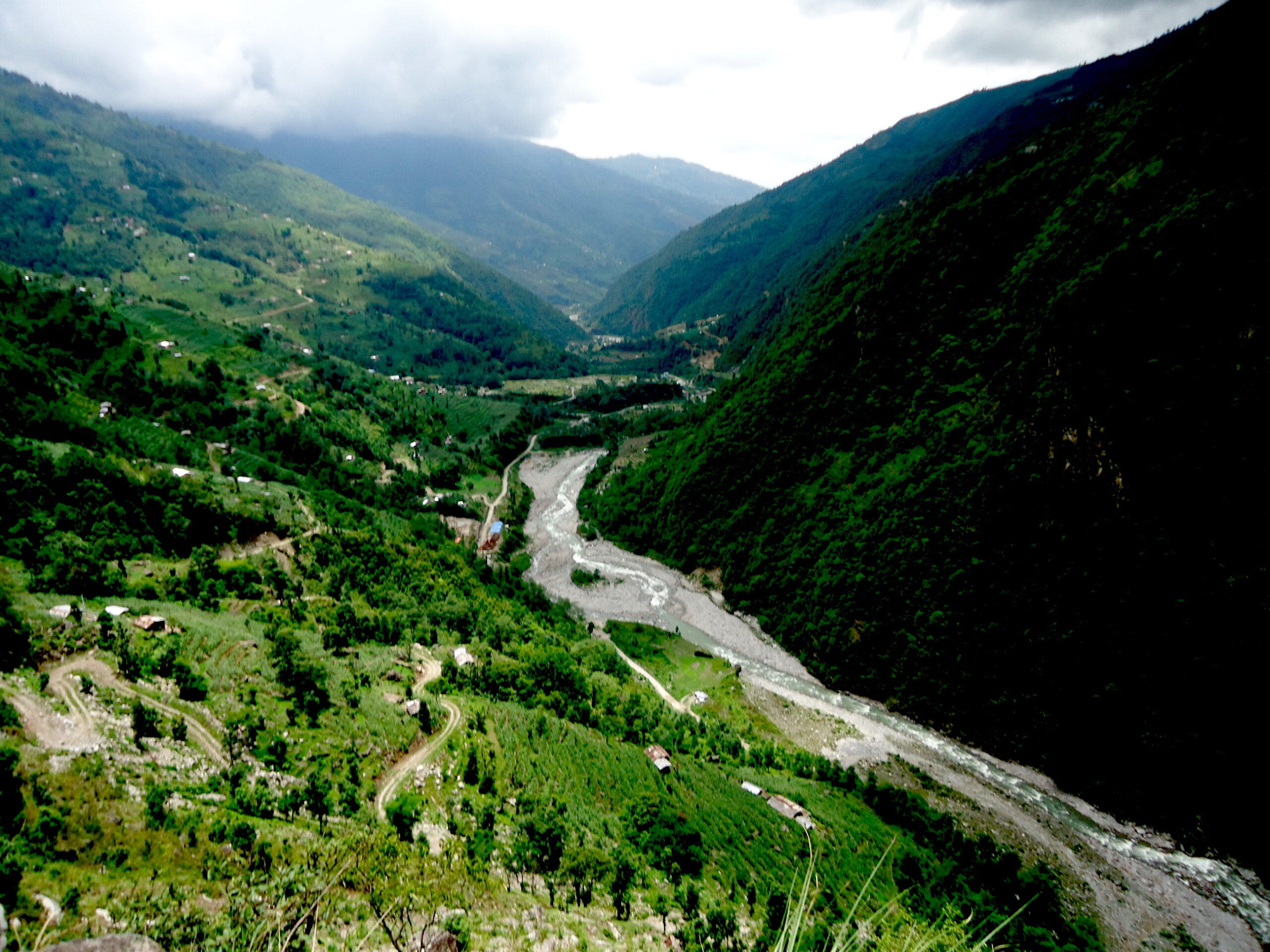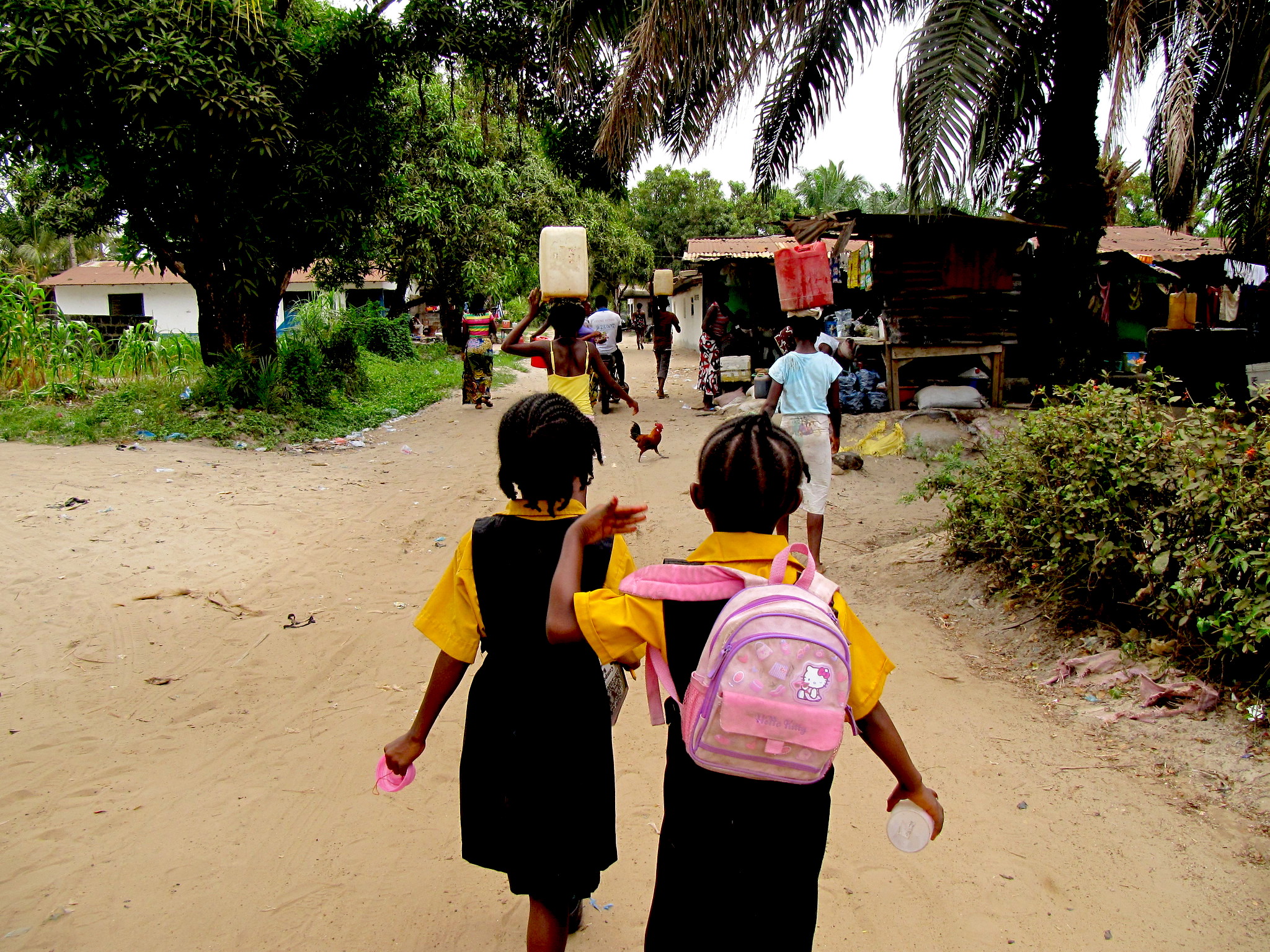The authors wave a red flag at public-private partnerships, which, despite major failures, continue to be promoted by institutions such as the World Bank to finance social services and infrastructure.

Santiago, Chile. (alobos life, Flickr, CC BY-NC-ND 2.0)
By Océane Blavot, Rodolfo Bejarano and Mae Buenaventura
in Brussels, Lima and Manila
Inter Press Service
Last month, we joined more than 1000 representatives from all sectors of civil society who came together in Santiago de Chile to debate the future of – and threats to – public services the world over.
Participants discussed the chronic underfunding which continues to drive economic inequality, injustice and austerity, and the neocolonial policies that maintain the status quo.
Those debates have resulted in the launch of “Our Future is Public: The Santiago Declaration for Public Services” — an agreement signed by more than 200 organisations vowing to work to “transform our systems, valuing human rights and ecological sustainability over GDP growth and narrowly defined economic gains.”
One of the most damaging initiatives that has deeply affected the delivery of public services and infrastructure projects on all continents is the rise of public-private partnerships, or PPPs.
They have long been promoted by institutions such as the World Bank as a silver bullet to close the so-called gap to finance investments in services and infrastructure. The premise is that the private sector can deliver these services more efficiently and to a higher standard than the public sector, despite extensive evidence to the contrary.
We lay the pitfalls of PPPs bare in our new report “History RePPPeated II: Why public-private partnerships are not the solution” — the second in a series of investigations documenting the impacts of PPPs across Africa, Asia, Latin America and Europe.
Support CN’s
Winter Fund Drive!
Launched at the Santiago conference with some of the partners responsible for investigating and authoring the case studies, the report not only highlights negative impacts of PPPs, but sets out recommendations for how to better finance infrastructure and public services in the face of false solutions being proposed in the face of multiple current crises.
These narratives wholly reflect red flags that are raised in the Santiago Declaration.
Failures on Multiple Levels
Through these investigations, we discovered failures on multiple levels in PPPs covering infrastructure such as roads and water supplies, as well as vital public services like healthcare and education.
From escalating costs for the stretched public sector to environmental and social impacts, we found time and again that communities had been ignored, displaced and had their basic rights violated by thoughtless projects designed and implemented in the pursuit of profit.
A prime example is that of the Melamchi Water Supply Project (MWSP) in Nepal. First announced nearly a quarter of a century ago, the project’s aim was to deliver clean, reliable and affordable water to 1.5 million people in Kathmandu.
And yet, 24 years later, residents are still waiting, while communities at the Melamchi water source are facing scarcity of water and eroded livelihoods.

Melamchi Diversion Scheme in the buffer zone of Langtang National Park, Nepal. (Ananda Raj Devkota, CC BY-SA 3.0, Wikimedia Commons)
Instead of safe, clean drinking water — an internationally recognised human right — they have witnessed an extraordinary revolving door of private companies and institutional funders, including the World Bank, who have each failed to deliver.
To add to the MWSP’s colossal failure, 80 hectares of farmland have been lost to the project, a heavy blow to local residents, and up to 80 households have been forcibly displaced due to construction.
Who owns and controls our resources and public services became even more vitally important with the outbreak of the Covid pandemic in March 2020. Market-based models cannot be relied upon to deliver on human rights or the fight against inequalities as they are accountable only to their shareholders and not to their users.
This resulting focus on profit is overwhelmingly apparent in our case study from Liberia. Here, the U.S. outfit Bridge International Academies (now NewGlobe) abandoned its students and teachers during the height of the Covid-19 pandemic, shutting down schools and cutting teachers’ salaries by 80-90 percent, despite being paid by the government.
And yet, in 2021 the Liberian government indefinitely extended the project, effectively subsidising a U.S. for-profit company at a cost that is at least double government spending on public schools.

Children in Greater Monrovia, Liberia, 2013. (EU Civil Protection and Humanitarian Aid, Flickr, CC BY-NC-ND 2.0)
In Peru, the Expressway Yellow Line has emerged as one of the most controversial projects ever carried out. This toll road was supposed to ease congestion issues in the capital city Lima, but instead toll rates have been unreasonably increased on at least eight occasions.
This generated almost $23 million for the private company involved and transpired with the complicity of public officials. Meanwhile, the Peruvian state suffered economic damages of $1.2 million due to under-the-table negotiations between public officials and the private company, which led to the incorrect implementation and improper modifications of the contract years after it was initially signed.
Today, questions regarding the project and conflicts surrounding its implementation remain, while Lima residents’ expectations of quality road infrastructure to improve living conditions for those who have been most affected, continue to go unmet.
The human cost of the PPP projects showcased by “History RePPPeated II” is self-evident, but they are far from the exception. Rather they serve to illustrate common failures with the PPP model that risk compromising fundamental human rights and undermine the fight against climate change and inequalities.
Their continuing promotion is one of the many reasons why we support the Santiago Declaration for Public Services. Together with all its signatories, we will strengthen resistance to PPPs with their focus on private-led interests and promote public-public or public-common partnerships for a future that is public.
Océane Blavot is senior campaign and outreach coordinator, development finance, European Network on Debt and Development.
Rodolfo Bejarano is economist and analyst with New Financial Architecture, Latin American Network for Economic and Social Justice.
Mae Buenaventura is team manager, Debt Justice Programme, Asian People’s Movement on Debt and Development.
The Santiago Declaration on Public Services, is a global manifesto signed by more than 300 organisations from around the world, and which was launched in late Januray. The Declaration signals the start of an international movement to move away from the privatisation of public services and towards a future that is publicly funded and controlled. It is also the outcome of a four-day conference during which several civil society groups from around the world launched a report containing a series of investigations highlighting the failures of the PPP model in projects around the world, titled “History RePPPeated II.”
This article is from Inter Press Service.
The views expressed are solely those of the author and may or may not reflect those of Consortium News.
Support CN’s
Winter Fund Drive!
Donate securely by credit card or check by clicking the red button:


PPP, plain and simple = Private profit at public expense. Another way to view it is the theft of public commons for private profit.
Sooner rather than later, more of us must awaken to the reality that we live in a society with the capabilities of producing more than enough food, shelter, and other vital accommodations for every human on the Earth. The only thing standing in the way, aside from the sociopathic uber-rich, is our regressive politics. We all (citizens of the U.S.) are long-overdue for a good hard look in the mirror, and I mean everybody. It seems some are beyond hope, having given themselves completely to The Machine. The other half, give or take, are paralyzed by either fear, uncertainty, apathy, anger, or some various combinations of them all. Deep down most of us know we can do all of this much differently. It just cannot be forced upon people; the doubters must be shown how it can be done.
In a transition out of capitalist dystopia, first all vital products and services must be made non-profit, funded by us all via government subsidies, and make the financial “industry” and some of the more unscrupulous industries give back for this purpose some of the funds they have delightfully gouged out of us.
To the capitalists, “public” is a dirty word. Be it public transit, public health, public education, public libraries, public utilities and so on, they ALL represent unrealized (as yet) profits for the owning/investing class. They want it ALL, and their proxies in congress are there to make sure they’ll get as much as possible. They may dress it up by adding the word ‘public’ to their plundering schemes, but, it is no less a means for continued transfer of wealth upwards. …………………. The US empire goes the world over pillaging and plundering to control natural resources, markets and geo-political advantage. You’d have to be very naive to not think the US will increasingly turn to domestic resources to also plunder. —-> SS and Medicare will be expropriated by the capitalists under the guise of PPP. Perhaps there’ll be PPP fracking and mining schemes around the country, all enacted without public input.
——- Remember, your health, your life means NOTHING to the capitalists. You are merely a unit of consumption. Your life is viewed upon in actuary terms only ——–> how many years will you ‘produce’ – how many years will you be a ‘drag’ on society (in current parlance). A cost/benefit analysis, if you will.
——– This is the context in which the gov’t. rushed to shut down all/any pandemic mitigation measures. If the most vulnerable – the aged – die off, eh, so what?? They’re just a ‘drag’ on society, anyway. It’s “profits over people” —- a pithy three words that says it all.
“Useless eaters” n 1930s Germany.
Why is the US medical health model far more expensive… an expense which includes less efficient outcomes… most critically American citizens far higher COVID Death Rate?
Welcome to Earth’s Ultimate Public Private Partnership!
LOL!
“Public private partnerships” more often than not mean the regulators back off, bought and paid for politicians look the other way, and the parasites of the financial private sector run roughshod over everyone and everything. Clintonites were big on this gibberish and look what they wrought: the repeal of Glass-Steagall and the resultant carnage.
The Clinton Foundation is nothing but a front for the establishment of PPPs. I don’t know this for certain, but I speculate that the Foundation has not made a single “contribution” that is not organized as a PPP.
Excellent point